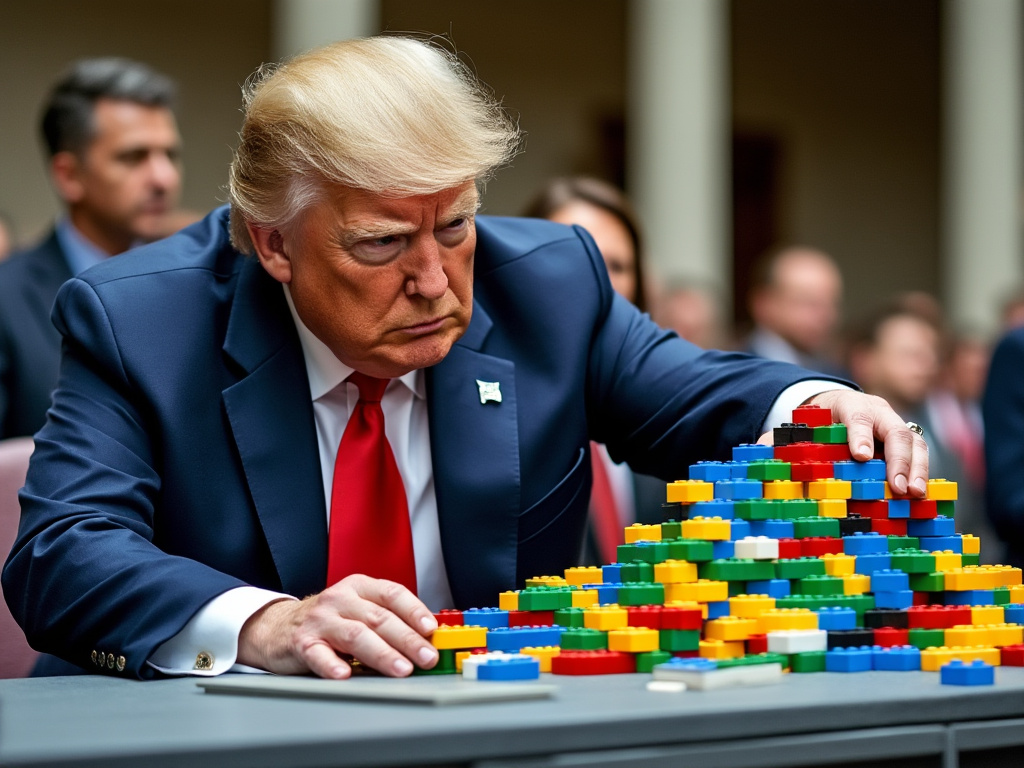Donald Trump's presidency was marked by significant shifts in U.S. border and immigration policies. While supporters lauded his tough stance, critics argue that his approach was not only ineffective but also harmful to America's values and global standing. This post examines the key aspects of Trump's border policies and their impacts.
At the heart of Trump's border strategy was the controversial "zero tolerance" policy. This approach led to the separation of thousands of migrant children from their parents at the southern border. The images of children in detention facilities shocked the nation and the world, sparking widespread condemnation. Even after courts intervened, the process of reuniting families proved challenging, with some separations lasting for extended periods.
The psychological trauma inflicted on these families cannot be overstated. Mental health experts warned of long-lasting effects on the children's development and well-being. This policy not only raised serious humanitarian concerns but also damaged America's reputation as a beacon of hope for the persecuted.
Trump's "Remain in Mexico" program fundamentally altered the asylum process. By forcing asylum seekers to wait in Mexico while their cases were processed, the administration effectively outsourced a humanitarian responsibility. This policy exposed vulnerable individuals and families to dangerous conditions in border towns, where they often fell victim to crime and exploitation.
The program was criticized for violating international refugee law and for making it nearly impossible for asylum seekers to access legal representation. It represented a stark departure from America's long-standing commitment to providing safe haven for those fleeing persecution.
The border wall became the most visible symbol of Trump's immigration policy. Despite promises that Mexico would pay for it, billions of U.S. taxpayer dollars were diverted to the project. Environmental groups decried the ecological damage caused by construction, while security experts questioned the wall's effectiveness in stopping illegal crossings.
Much of the "new" wall construction actually replaced existing barriers, raising questions about the project's value. Critics argued that the funds could have been better spent on technology, personnel, and addressing the root causes of migration in Central America.
Under Trump, the U.S. refugee resettlement program saw drastic cuts. The annual refugee admission cap plummeted from 110,000 in fiscal year 2017 to a historic low of 15,000 in fiscal year 2021. This retreat from global leadership in refugee resettlement left thousands of vulnerable people in precarious situations and undermined long-standing relationships with international partners.
The attempt to terminate the Deferred Action for Childhood Arrivals (DACA) program threw the lives of hundreds of thousands of young immigrants into uncertainty. These "Dreamers," brought to the U.S. as children, faced the prospect of deportation to countries they barely knew. While the Supreme Court ultimately blocked this move, the prolonged legal battle created significant stress and instability for DACA recipients.
Perhaps as impactful as the policies themselves was the rhetoric surrounding them. Trump's inflammatory language about immigrants, including characterizing some as criminals and referring to certain nations in derogatory terms, had real-world consequences. It emboldened xenophobic sentiments and made constructive policy discussions more challenging. The tone set from the highest office in the land resonated through society, affecting how immigrants were perceived and treated.
Collectively, these policies represented a significant departure from America's traditional role as a nation of immigrants. The emphasis on enforcement over integration, deterrence over compassion, and unilateral action over international cooperation marked a fundamental shift in approach.
Critics argue that this shift not only failed to address the complex realities of migration but also betrayed core American values. The policies often seemed to prioritize political messaging over practical solutions, leaving a legacy that the current administration is still grappling with.
As we move forward, it's crucial to reflect on this period and its impacts. The challenges at the border are real and complex, requiring nuanced, humane, and effective solutions. The Trump era serves as a stark reminder of the consequences when policy is driven more by rhetoric than by a comprehensive understanding of the issues at hand.
